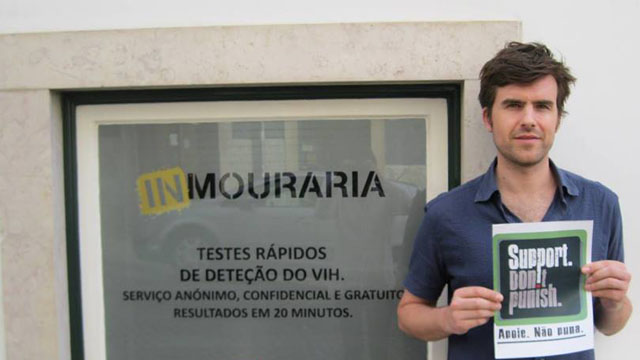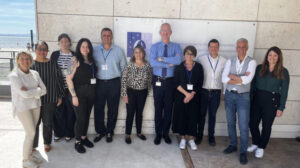An interview with Ricardo Fuertes, a young psychologist, about his experiences at working in the harm reduction field in Barcelona and Lisbon.
Drugreporter: When and why did you decide to work in the harm reduction field?
Ricardo Fuertes: 10 years ago, I had recently moved from Lisbon to Barcelona. I had a job I didn’t like, and I was looking for another one. I happened to see a job offer for a Drug Consumption Room, with SAPS Creu Roja. I had never heard about harm reduction and I didn’t know much about drugs, but I had had some experience in mental health. During my studies – psychology – several teachers had mentioned that people who use drugs are the most difficult and challenging clients, but I was sceptical about that idea and open to give it a try.
DR: What services did your organisation (SAPS Creu Roja) provide for people who use drugs? What kind of people attend the service?
RF: In SAPS, there was an understanding that preventing harm and promoting health needs a comprehensive approach. For that reason, there were many services provided. Some focussed on drug use (drug consumption room, needle and syringe exchange, overdose prevention, referral to opioid substitution treatment), others on health (testing, wound dressing, referrals). We offered social support, legal support, a drop-in area, showers, laundry, workshops, recreational activities, etc.
The project was working with people with strong social needs. There were also clients who only came because they didn’t want to risk injecting drugs alone, in their house or room. Many clients were Spanish, of course, but there were also many young Italians, many Georgians and people from the Maghreb. We could see that political and economic crisis and repressive regimes, anywhere in the world, would lead to having vulnerable populations from those countries in low-threshold facilities such as ours, in Barcelona. I think that similar things happen in other European cities.
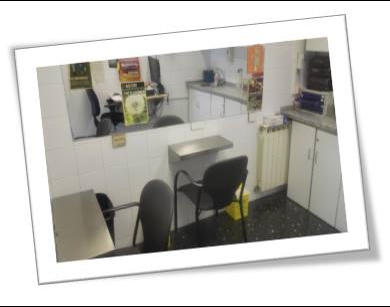
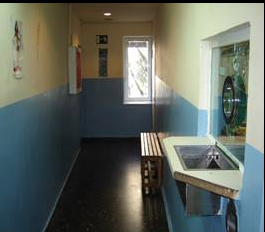

DR: What are the benefits of a drug consumption room?
RF: The drug consumption room in our facility was very small and basic – just enough room for two clients at a time. One of my colleagues used to say that a drug consumption room is just a place where people use drugs while someone is watching. I very much like this idea. The concept of very sophisticated facilities can be a barrier to scaling up these services, in places where there are no financial resources or large venues.
A consumption room is basically a quiet place to inject, or smoke, more safely, with professionals there to help (or call for support) in case it’s needed. And of course, having someone present during drug use who is able to provide useful advice creates a strong credibility towards harm reduction professionals. Let’s say that people start to see that our drug-related messages are really useful and not just blablabla.
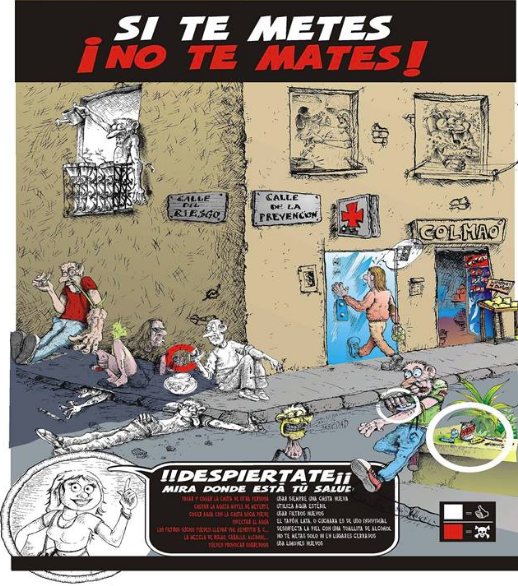
DR: How do people who live near to DCRs react to clients?
RF: In Barcelona, there was very strong opposition to some drug consumption rooms, especially to one which was implemented in a wealthier part of the city (Vall d’Hebron). Our DCR was very discreet, entered via the side door of a small hospital, and most people didn’t know that we existed. I guess that there was some tolerance from the neighbours due to the high impact that heroin use has had in cities in the south of Europe. Everybody has close cases/examples of drug use among their families and friends. We see that very clearly also in Lisbon.
DR: What was your relationship with the police?
RF: There was an agreement with the police. They didn’t come searching for people at our centre. They understood that this would compromise our work. We sometimes called the police if there was violence or threats, but that was mostly a dissuasion measure. Calling the police was an attempt to stop the conflict and convince the client to leave. We never called the police without warning the person and giving him or her the chance to leave before police arrived.
DR: What did you personally learn from working with people who use drugs?
RF: First, I understood that people who use drugs are not a homogeneous group, everybody is unique and there is no such thing as the typical behaviour or personality of a person who uses drugs. I’ve also learned a lot about less-well-known realities: drug use, dealing, sex work, prison, and squatting. I now know that those realities are not black and white like most people usually think. In those situations, there are no good guys and bad guys. If people are involved, realities immediately become complex – even more so, because of policies and laws which regulate drugs and sex work, which make no sense and bear no relation to real life.
And I’ve heard and witnessed strong experiences of stigma and discrimination directed at people who use drugs, especially within health and social services; and situations of extreme poverty and violence. Many of our clients live in constant exposure to trauma.
Many people who use drugs are survivors, with an unbelievable sense of humour and generosity despite the circumstances.
DR: What is your personal view on drug dependence? Is it a disease or something else?
RF: In Portugal, we have seen the view on drug dependence shifting from a justice issue (crime) to a health condition. That has been useful for implementing services and reducing stigma, but also has some down-sides. To label drug use as merely an individual chronic condition is a very disempowering and simplistic concept. It ignores structural factors such as poverty, stigma and the impact of prohibition. For example, we have seen people changing the drugs they use, or the way they use them (e.g. injecting) due to availability and price. And we have seen many clients using drugs to cope with very difficult living conditions.
In our work, we tend to focus less on drug use, and more on responding to the needs that the clients present. On many occasions, drug use is the least of the problems.
I am very sceptical about models which are too focussed on brain disease or genetic pre-conditions.
DR: Where do you currently work, and how is it different from working in Barcelona?
RF: Since 2010, I’ve been working in Lisbon, Portugal, for GAT – an organisation created by people living with HIV, which does advocacy and provides services. In 2012, we implemented IN-Mouraria, a harm reduction centre. It has become a very popular place among people who use drugs. It also created opportunities for discussing and sharing information about health, drugs, society, and life, in an open and non-judgemental way. We are challenging the idea that active drug users can’t get involved in activism and policy formulation.
There are basically two main differences between my previous and current work. In Lisbon, we have so far been unable to implement a drug consumption room. Such facilities had never existed in Portugal. On the other hand, we have much more contact with the community than in Barcelona. We offer services such as HIV/STI testing for the general population, and most of our activities and discussions are open to the general public. That’s part of the philosophy of my organisation, but it’s also our strategy, to have a normalised and positive relationship with our neighbours.
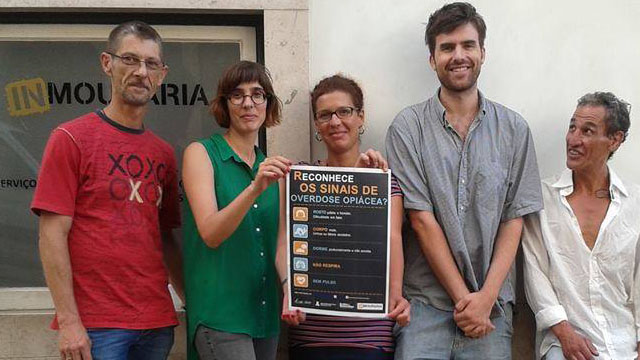
DR: What are the main challenges for harm reduction in Europe?
RF: Harm reduction was born and scaled up in Europe in moments of crisis. Heroin was an issue, also public nuisance, and of course HIV and AIDS. Brave people challenged the system and did what had to be done. The trigger for action was basically common sense and humanism. Nowadays, the prevalence of problem drug use in Western Europe is smaller. New HIV infections related to drug use are less. Drug use has become de facto decriminalised. There is a sense that things are much better and that pretty much everything has been achieved. Harm reduction teams have become professionalised and dependent on public funding. And we are losing the sense of urgency and becoming part of the system. In many cases, we have become an arm of the state to provide cheap services. We still need, however, to push for services, even if they will serve less people. We should be vocal about the lack of access to services and treatments for undocumented migrants. We should fight the high prices of Hep C treatments, we should have a critical vision about who is going to prison on account of minor drug trafficking offences. Harm reduction needs to be pragmatic and evidence-based, but also needs to continue to be inspired by community radicalism.
Interview by Peter Sarosi
